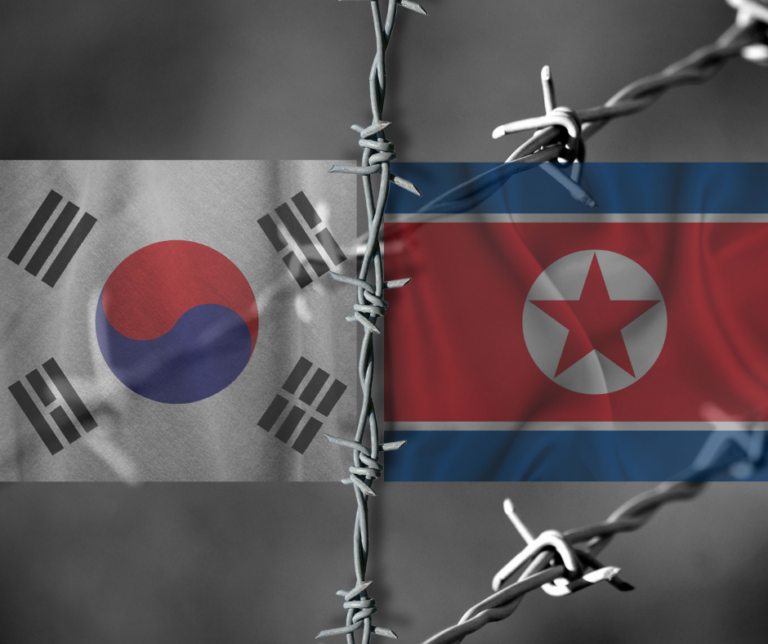
Seoul, November 15, 2024 — Tensions on the Korean Peninsula have surged in recent days as North and South Korea engage in a dangerous military standoff, raising fears of potential conflict in the region.
North Korea has ramped up its aggressive posturing, launching multiple ballistic missiles into the Sea of Japan over the past week, in defiance of international sanctions and warnings from the United Nations. These launches came as South Korea, in collaboration with U.S. forces, conducted large-scale military exercises near the border, a move Pyongyang condemned as “provocative” and “a rehearsal for invasion.”
North Korea’s Missile Tests
On Thursday, North Korea fired two medium-range ballistic missiles, the latest in a series of weapons tests that began earlier this month. The North Korean government, led by Kim Jong-un, claimed the launches were a response to South Korea’s joint military drills with the U.S., which it views as a direct threat to its sovereignty.
North Korea’s state-run media outlet, KCNA, released a statement saying, “The continuing hostile actions of the South and its foreign partners are pushing the region to the brink of war.” The regime further vowed to “take all necessary steps to protect the nation’s security and defend its people.”
These tests are the first since North Korea claimed it had successfully developed a new type of solid-fuel intercontinental ballistic missile (ICBM), capable of striking targets as far away as the U.S. mainland. International observers believe this new round of missile tests could be a show of strength designed to solidify Kim Jong-un’s domestic power while pressuring South Korea and its allies.
South Korea’s Military Response
In response to the missile launches, South Korea has remained on high alert. The South Korean military, alongside U.S. forces stationed in the region, conducted air drills and displayed advanced missile defense systems, signaling their preparedness for any escalation.
South Korea’s President, Yoon Suk-yeol, addressed the situation during a national security briefing, condemning North Korea’s actions as “reckless” and a violation of international law. He stressed that South Korea remains committed to peace but will “respond decisively to any further provocations.”
“Our forces are prepared to defend our country and ensure the safety of our people,” President Yoon said. “We call on the North to cease its aggressive behavior and return to diplomatic talks.”
International Reactions and Diplomatic Efforts
The international community has expressed growing concern over the escalating tensions. The United States, a key ally of South Korea, condemned North Korea’s missile launches as a “destabilizing action.” The U.S. Department of State reiterated its commitment to defending South Korea and Japan, emphasizing the need for North Korea to engage in diplomatic negotiations and denuclearization talks.
China and Russia, both of whom have historically supported North Korea but advocated for regional stability, urged both sides to exercise restraint. China’s Foreign Ministry called for renewed dialogue between the Koreas, warning that a further escalation could lead to devastating consequences for the region.
The United Nations Security Council has scheduled an emergency meeting to discuss the situation, although previous efforts to impose further sanctions on North Korea have faced resistance from China and Russia.
Outlook and Concerns
Analysts fear that continued military actions on both sides could lead to a miscalculation, sparking a wider conflict. Despite years of sanctions and diplomatic isolation, North Korea has continued to advance its missile and nuclear weapons programs, while South Korea and its allies have bolstered their military defenses.
The recent series of events highlight the fragility of peace on the Korean Peninsula, a region that remains technically at war since the Korean Armistice Agreement of 1953. With tensions at a new high, the prospect of renewed diplomatic talks seems increasingly distant, leaving many in the region on edge as they watch the unfolding crisis.
As both North and South Korea continue their military maneuvers, the world watches anxiously, hoping that the situation does not spiral out of control.



